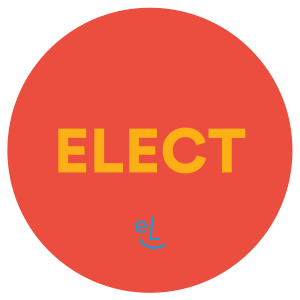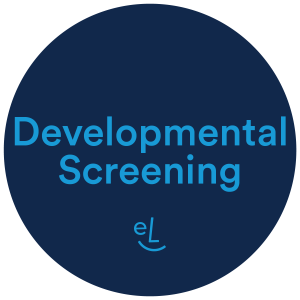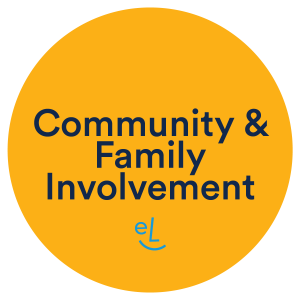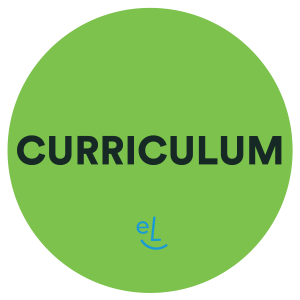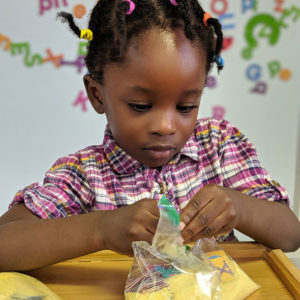
Learning Through Play Curriculum
Learning Through Play describes how a child can learn to make sense of the world around them using first hand experiences. Through play-based learning, children develop social and cognitive skills, mature emotionally, and gain the self-confidence required to participate in new experiences and environments. Based on the children’s cues, our education staff guide and support to extend the learning process.
Key ways that young children learn through play include, exploring and engaging in new experiences, interacting with other children and adults, being physically active, talking to themselves, communicating with others, meeting physical and mental challenges, being shown how to do new things, practicing and repeating new and emerging skills.
- Play develops curiosity and perseverance
- Play builds knowledge of ourselves and social relationships
- Play builds self-esteem, a sense of independence and problem-solving skills
- Play builds language and communication skills
- Play develops both fine and gross motor control
At all ages and stages children benefit from playing alone and exploring their own interests. When playing with other children, social skills are learned and practiced.
At Centres for Early Learning, our curriculum model is based on the learning through play philosophy and is reflected in the activities that we plan based on the children’s interests.
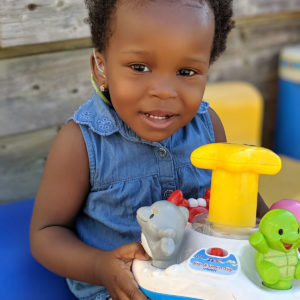
Curriculum model
How Does Learning Happen
How Does Learning Happen is a professional resource that supports pedagogy and program development in our centres and is designed to have children learn through relationships, family and their environment.
- Four foundations: Belonging, Engagement, Expression, Well-Being
- Allows educators to focus on interrelationships
- Reflective practice & collaborative inquiry
Early Learning for Every Child Today is a guide to support curriculum and pedagogy in our centre by outlining a continuum of skills for every age group
- Continuum of developmental guidelines
- Supports curriculum structure
- Incorporates skills from all domains (social, emotional, communication, language & literacy, cognition and physical)
A variety of evaluation and planning tools are used to measure a child’s developmental progress and ensure individual success
- Infant Individual Program Plans
- Individual Education Plans
- Nippissing Developmental Screenings
- Ages & Stages Questionnaires
- Observations
We build a sense of community by collaborating with our families and external resources to provide services that meets your needs
- Celebrate diversity and cultures
- Inclusive settings & practices
- Field trips and enhancement programs
- Family support resources & services available
A well rounded curriculum is offered by implementing a variety of stimulating and educational activities based on the Learning Through Play philosophy
- Life Skills Education
- STEAM (Science, Technology, Engineering, Arts, Math)
- Literacy
- Wellness
- Jolly Phonics
- French (Exclusively offered for preschool students at Cambridge Place, Denton Place, Dawes Rd.)
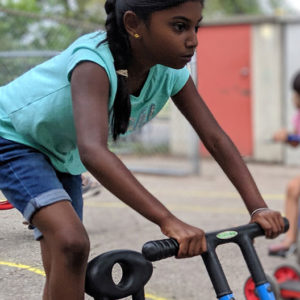
Brain Gym™
What is Brain Gym?
Brain Gym is the study of movement and how it relates to learning.
When the body is active, the brain is energized and connects the whole brain in a way that is necessary for positive growth and change.
Why use Brain Gym?
People of all ages use this learning program to create rapid, and often dramatic, improvements in their reading, writing, language and numerical skills. Many others use the work to profoundly enhance the quality of their attention and concentration, relationships and communication, memory and organizational skills, athletic performance, and much more.
Brain Gym activities are lively and fun to do. Years of field studies have proven that learners achieve the physical skills they need for academic success.
The ability to learn is especially important in the first years of school when children are laying the foundation for their future education and adult life. Brain Gym is taught worldwide in thousands of schools to help ease the way in which young children learn.
How is Brain Gym implemented?
Our Centre Director’s at CFEL are all Brain Gym trained and Brain Gym is an integral part of our continuing curriculum. We are committed to using this program going forward in our endeavors to teach the children we serve tools and skills necessary for their ongoing success and positive development.
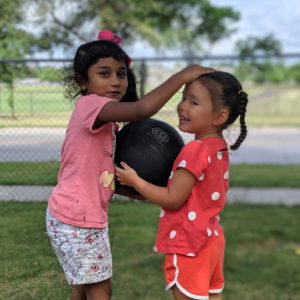
Life Skills Education™
At Centres for Early Learning, we believe that the skills and experiences acquired in early childhood are foundational. Our Life Skills Education program (LSE) strives to provide children with the practical skills of daily living. This program provides an environment where children are encouraged to develop respect, responsibility and independence through hands-on activities, with the support of educators that value and embody these qualities.
The Life Skills Education program provides consistent, integrated opportunities for children to become more independent and grow. When children are independent and fully engaged, their self-esteem is supported. Educators model Life Skills throughout the day and guide children to develop practical skills for daily living on an ongoing basis. Life Skills Education is a practical approach to learning, not just a program, in which our educators reinforce and integrate the key focuses of Life Skills into all aspects of their classroom.
Life Skills Education key focuses include:
- Social Skills
- Self Help Skills
- Organizations Skills
- Care of the Environment (indoor and outdoor)
- Self-Care
- Health & Nutrition
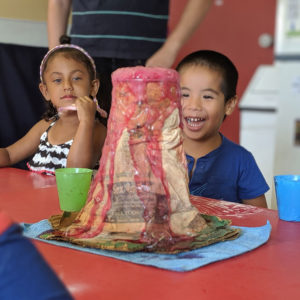
STEAM
STEAM is an educational approach to learning that focuses on Science, Technology, Engineering, Art, and Math.
Creating educational and engaging environments for all children to explore and thrive ensures that they will be active participants in their own learning. At Centres for Early Learning, STEAM is introduced in all classrooms naturally every day, as children explore, play and attempt new things. Through discovery, young children have the opportunity to explore the world around them, using their own ideas to create, collaborate and problem solve. As children get older, they learn and experiment with new STEAM skills and theories which develops their capacity for creative and critical thinking.
We work collaboratively alongside parents to help connect the classroom and home, to further support STEAM learning.
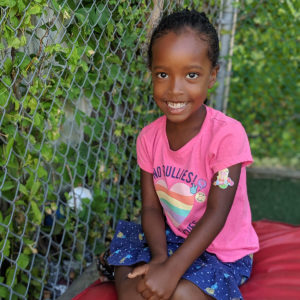
Wellness
Wellness is an active, lifelong process of becoming aware of your choices and making decisions that will help you to live a more balanced and fulfilling life. We endeavor to promote and support social, mental, physical, and nutritional wellness for everyone within Centres for Early Learning. A variety of educational and fun activities are implemented within the centres and resources are shared with children and families, as well as staff regularly.
At Centres for Early Learning, we encourage mindfulness by facilitating monthly Yoga programs with skilled instructors, and by incorporating Brain Gym movements and basic meditation into our group times. We recognize and promote Mental Health Week and Children’s Mental Health Week annually, and raise awareness through educational resources and activities. Our teachers model positive self-care, good eating habits and set appropriate limits and expectations to encourage self-regulation for the children during routines and curriculum implementation.
Physical activities are planned and facilitated daily and active play equipment is available, both inside and outside the classroom to promote an active lifestyle. Enhancements to the curriculum may include, music and dance programs, sports, and field trips to sporting events, as well as an annual Olympic Day field trip for Kindergarten and School-age children. This event brings all of our centres together to encourage team spirit and social wellness by making new friends in a fun environment.
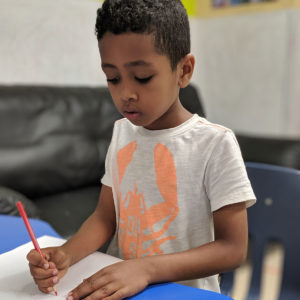
Literacy
Early language and literacy, such as reading and writing development begins in the first six years of life and is closely linked to a child’s earliest experiences with books and stories. The interactions that young children have with literacy materials (books, paper, and crayons) and with the adults in their lives are the building blocks for language, reading, and writing development.
Literacy development occurs not only in childcare or school but in every aspect of daily life. Children interact with others when they have a conversation. They begin to recognize signs, read maps and books, advertisements, and recipes. Literacy opens the door to the world.
Our educators are familiar with different methods of communication including simple sign language and/or Picture Exchange Communication System (PECS) to communicate with children as their language develops. Through the use of visuals, we allow children to connect words to a visual picture or symbol, therefore supporting the development of memory skills, symbol and picture recognition, and extending and enhancing language development. Communication can be as simple as an infant smiling or crying to communicate their needs, a toddler forming their first words, a young child interpreting the symbols around them, or a preschooler singing a song.
Children in our programs are exposed to a variety of languages through the use of simple words in their first language, as well as learning classroom area signs, books and labels in multiple or dual languages, and alternate formats of print or books in the classroom. Children have opportunities to create their own homemade books, participate in journaling or printing activities when developmentally appropriate.
“Readiness” is a term used to describe preparation for what comes next. Children’s School Readiness is affected by the early care and learning experiences they receive. The research in brain development emphasizes that early learning directly influences a child’s ability to learn and succeed in school. Our Preschool, Kindergarten and School-age Education Curriculums are designed with School Readiness goals in mind. Children engage in learning opportunities that have them interacting with many different forms of text, in print and digital forms, using words, visuals and graphics. Jolly Phonics is a curriculum designed to assist children with their reading and writing skills. Children are taught the main 42 sounds of the English language (not just the alphabet sounds). With this knowledge, they are guided through stages of blending sounds to form words and then to reading. At the same time, they are taught to write by identifying the sounds in words and relating the letters.

